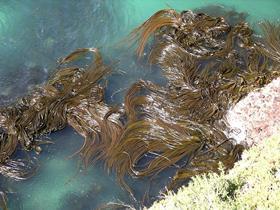
British researchers think they have found a key ingredient in the battle to reduce water and fertiliser in farming, using seaweed.
NIAB EMR and research partner Dove Associates say the slimy sea staple can be applied as a “biostimulant” to crops which increases a plants ability to withstand water and pest stress.
They say adding seaweed extract and beneficial microbes has been found to reduce water and fertiliser inputs by 10 – 20 per cent. Crop demonstrations by NIAB EMR are now being planned in the UK, Belgium and Netherlands and France to promote their use.
NIAB EMR’s Professor Xiangming Xu said that seaweed extract could be rolled out commercially for growers once the EU finalises biostimulant regulations.
“By 2020, the EU will implement a common European legal framework for the trade of biostimulants, but it remains unclear how their positive effects on water and nutrient use should be quantified.
“With this project we aim to create a standardised protocol that can be used by accredited laboratories to objectively evaluate biostimulants.”
The new find could itself stimulate new markets for seaweed producers across the 2 Seas Region, which designates the coastal areas across the souther North Sea and the English Channel.
The 2 Seas Region is known for its intensive horticulture which demands significant amount of water and nutrients. EU directives for combatting water and nutrient stress are already putting pressure on growers to reduce inputs, while economic forces are also forcing growers to cut back on water and nutrient consumption.
The plan to use seaweed was part-funded by the EU Bio4safe-project, coordinated by the Belgian Ornamental Plant Research centre, which aims to analyse the economic potential of seaweed-based biostimulants.



